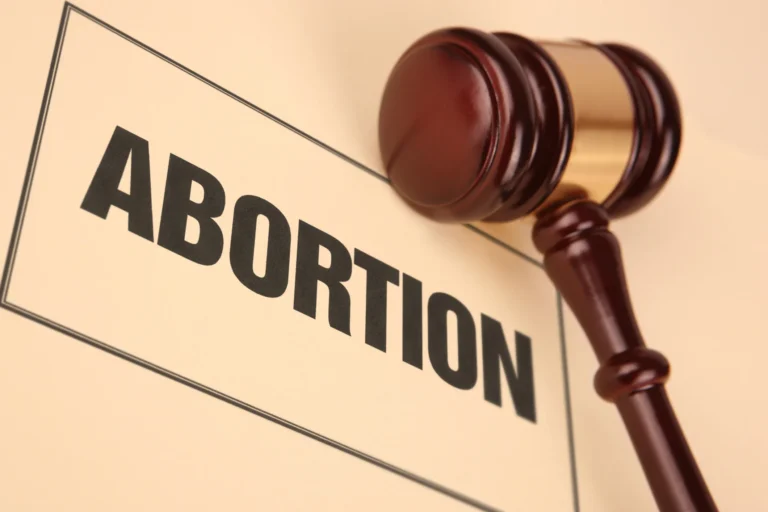Abortion Clinics Closed In Sri Lanka
Abortion is illegal in Sri Lanka, and thanks to the help of the citizens, police have had great success in closing down the clinics that invariably appear. As with many illegal pursuits, the abortion business in Sri Lanka is a highly lucrative one. Strict cultural taboos on unwed pregnancy drive women to pay anywhere between 25,000 LKR (US$232.23) and 100,000 LKR (US$928.94). Since the average persons annual income slightly exceeds 86,000 LKR (roughly US$800), this is a substantial amount of money in impoverished Sri Lanka. Women who leave their homes to become housemaids for the wealthy return pregnant, and will often go into debt to procure an abortion.
With so much money to be made, new “clinics” regularly appear to prey upon these unfortunate women. Centers spring up like mushrooms, even in small rooms.
Since abortion is illegal in Sri Lanka, IPPF affiliate Marie Stopes plays up their more acceptable services, while secretly performing illegal abortions in their clinics.
Recently, PRI’s in country affiliate alerted police headquarters of three “clinics” where the doctors charge large sums of money for abortion.
Those eager to make money off of these women’s difficulty will subject them to unhygienic conditions, having unskilled doctors cut into them without sterilizing their equipment, often resulting in profuse post-abortive bleeding, and, in some cases, the death of the woman operated upon. When excessive bleeding landed some of these women in the hospital, the hospital officials, not wanting to get blamed if these women died, notified the police that these women were victims of abortion. The public, outraged by the events, have taken it upon themselves to keep these bootleg-abortionists away from women who find themselves in such desperate situations. As soon as they confirm clinic locations, they alert the police, who take appropriate legal action.
Church Teaching Against Abortion Constant Through Centuries, Says New Resource
To help end confusion caused by recent misrepresentations of Catholic Church teaching on abortion, the U.S. bishops’ Committee on Pro-Life Activities has issued a two-page fact sheet called “Respect for Unborn human Life: The Church’s Constant teaching.”
Public debate on the topic was prompted by misleading remarks by Speaker of the House Nancy Pelosi, August 24 in an interview on Meet the Press. On August 26, Cardinal Justin Rigali, chairman of the bishops’ Committee on Pro-Life Activities, and Bishop William Lori, chairman of their Committee on Doctrine, issued a statement to correct her remarks. Other Catholic bishops released similar statements.
“This well documented fact sheet will help Catholics and others form their consciences in accordance with the Church’s unchanging teaching in defense of unborn human life,” said Deirdre McQuade, Assistant Director for Policy and Communications at the USCCB’s Secretariat of Pro-Life Activities.
Among other points, the tact sheet states that “modern science has not changed the Church’s constant teaching against abortion, but has underscored how important and reasonable it is, by confirming that the life of each individual of the human species begins with the earliest embryo.”
The full text of “Respect for Unborn Human Life: The Church’s Constant Teaching” is available online at: http://usccb.org/prolife/constantchurchteaching.shtml.
Internet Giants In Indian Gender Dispute
India’s top court has asked Google, Microsoft and Yahoo to respond to charges that they illegally advertise gender selection products, an activist and a lawyer said Wednesday.
India bans tests that allow people to know the gender of unborn children — a law designed to tackle widespread abortion of female fetuses.
“These companies are making a lot of money by doing highly targeted and selective advertising of these products,” said [Dr.] Sabu George, an activist leading the campaign.
“Our petition seeks to block these advertisements.”
Most Indians prefer sons because they can earn more money in the workplace, while girls are seen as a financial burden because of the matrimonial dowry demanded by a groom’s family.
“The court has issued a notice to Google, Microsoft and Yahoo asking them to reply to our petition,” Sanjay Parikh, a lawyer who lodged the complaint, told AFP.
The UN Children’s Fund (UNICEF) says India loses 7,000 girls every day through abortion.
Campaigners say the courts have intervened in the past to block newspaper advertisements of sex selection tests.
Parikh said the petition had been submitted along with letters from the government in which it agrees that the Internet advertisements are illegal.
The Internet companies did not immediately respond to media queries about the case.
See the source: “Internet giants in Indian gender dispute,” 13 August 2008, http://afp.google.com/article/ALeqM5jcBj1207k8r3VLFHJStGzNNznk2A








